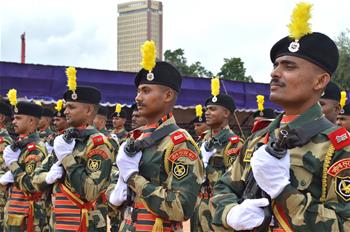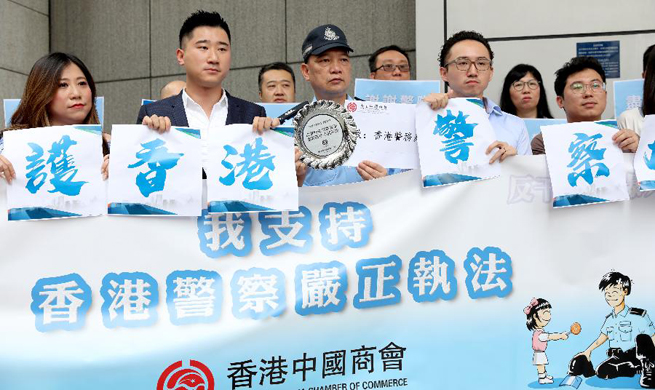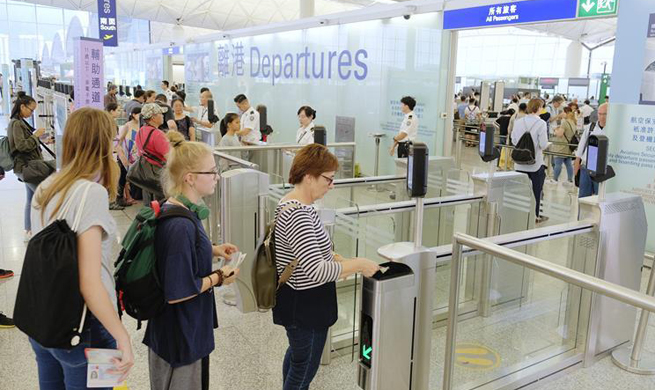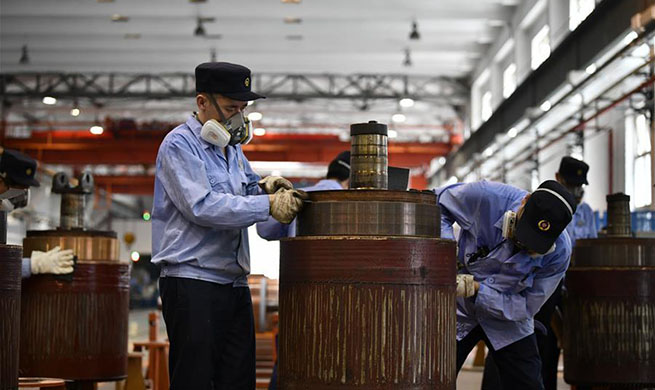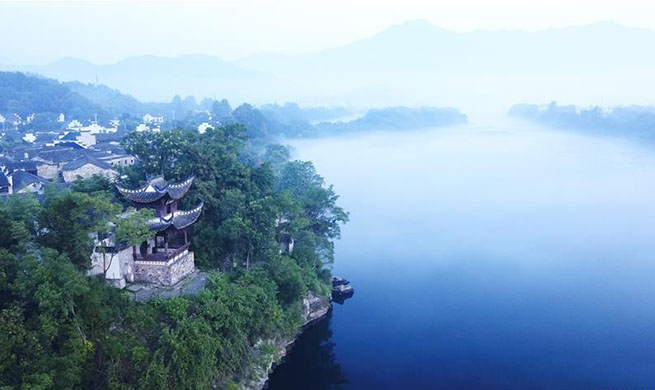SAN FRANCISCO, Aug. 14 (Xinhua) -- A pop-up exhibit was held downtown here on Wednesday to honor Asian women victimized by Japanese troops as sex slaves during World War II (WWII).
The exhibit, hosted by the San Francisco-based Education for Social Justice Foundation (ESJF) and the Alliance for Preserving the Truth of the Sino-Japanese War (APTSJW), featured pictures and a "Peace Girl Statue" that symbolized hundreds of thousands of Asian women victims including those from China, South Korea and the Philippines, who were forced into sexual slavery by wartime Japanese troops.
ESJF co-founder and Executive Director Sung Sohn from South Korea told Xinhua that Wednesday is the memorial day officially designated by the South Korean government to commemorate the victimized Asian women, also known as "comfort women," who suffered inhumane torture at the hands of Japanese troops during WWII.
It was also on this day in 1991 that South Korean comfort woman victim Kim Hak-sun broke her silence for the first time in nearly 50 years to tell the world about her wartime experience and the atrocities of the imperial Japanese troops.
"This is our way to remember and honor the 'comfort women' who were brutally treated by the Japanese troops," Sohn said.
"We are not only honoring the Asian women who were sexually enslaved by the Japanese military, but also remembering the victims of other sexual violence that is still happening today," she added.
Sohn said she hoped the event can help prevent this kind of violence in the future by raising awareness among the public.
ESJF Secretary-General Russ Lowe said this is the first time that the two groups have held a pop-up exhibit in the San Francisco city center to honor the "comfort women."
"We are not criticizing ordinary Japanese people, because we do have many Japanese friends who supported us," he said.
It is the Japanese government that should take responsibility for the atrocities of the Japanese military over seven decades ago, and it was unacceptable that the Japanese government still refused to apologize for the country's wartime crimes, Lowe said.
He said that unfortunately, those who do remember that part of history are getting older, and some have passed away.
"Here in the United States many people don't know about it because this history is not taught in schools," he said.
Lowe noted that they are making efforts to contact the American education community to include that part of history in the curricula of schools in the country so that American youth can learn about it, just as students learn about the Holocaust in world history class.
Michael Roosevelt, a San Franciscan resident, told Xinhua after watching the exhibit that he had already learned of the "comfort women" story from the book "The Rape of Nanking" written by the Chinese American writer Iris Chang, but the history reflected in the exhibit was still "horrible."
"It tells an important story that really needs to be told, and I hope more people can have a chance to see it," he said.
Early this month, the APTSJW launched a campaign to urge the public to place posters in the yards of their homes in the week beginning on Aug. 14 to seek justice for the "comfort women."



